Published Dec 1, 2022
Why Being Second-in-Command Rules
Although I learned it first from Spock, I'm with Riker on this one.
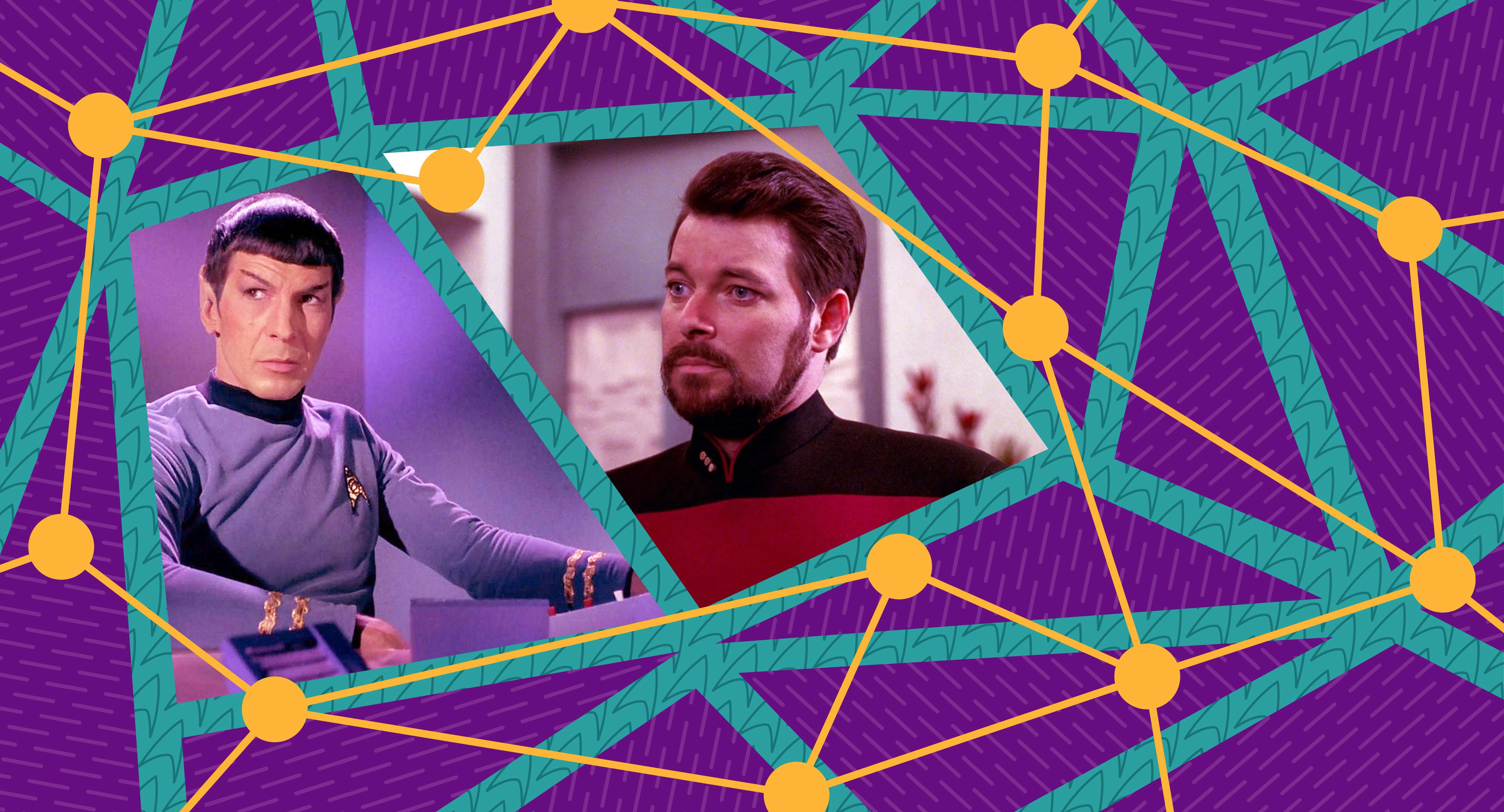
StarTrek.com / Rob DeHart
I’ve picked up a lot of life lessons from Star Trek over the years. One of the most useful ones, in my professional life, has been that being the captain is not all it’s cracked up to be.
Take it from me. As someone who’s been everything from Ensign (intern) to Captain (team leader), if you want the right amount of responsibility with just enough authority to make things happen and an opinion that’s respected without having to take on the biggest, most difficult parts of pretty much any job, then you don’t want to be the one in charge! The position you’re looking for is First Officer.
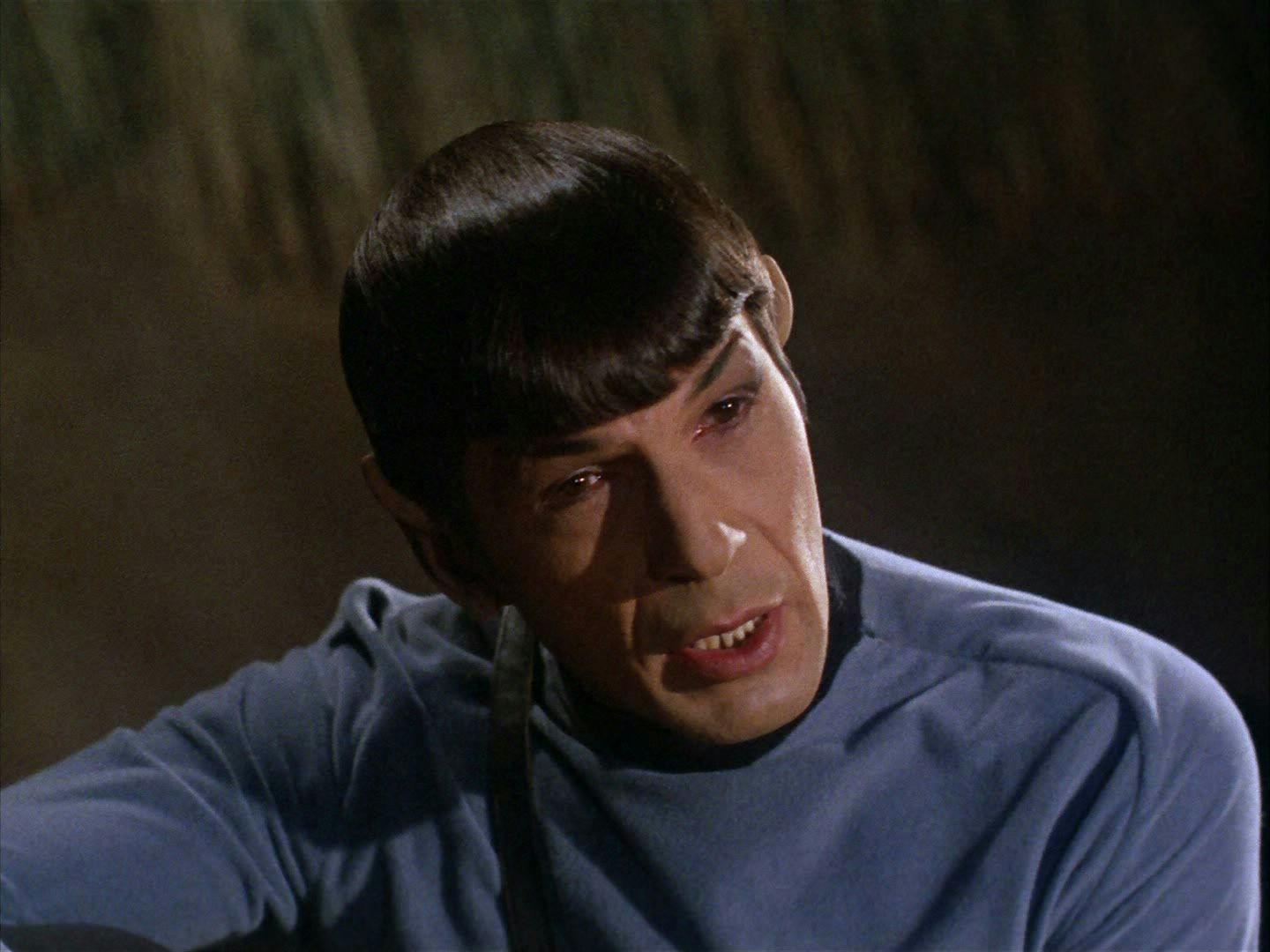
StarTrek.com
Accepting this personal truth began with Spock. As First Officer, Mr. Spock could make radical suggestions without the burden of having to make the final decision. He could tell Kirk to kill Gary Mitchell or to let Edith Keeler die, knowing his captain would be the one to make the ultimate call. And he could keep his conscience clean when he protested the violation of the Prime Directive as Captain Kirk was the one doing (or ordering) the dirty deed.
SPOCK: If we do what it seems we must, in my opinion, it will be in direct violation of the non-interference directive.
KIRK: These are people, not robots. They should have the opportunity of choice. We owe it to them to interfere.
SPOCK: Starfleet Command may think otherwise.
KIRK: I'll take my chances.
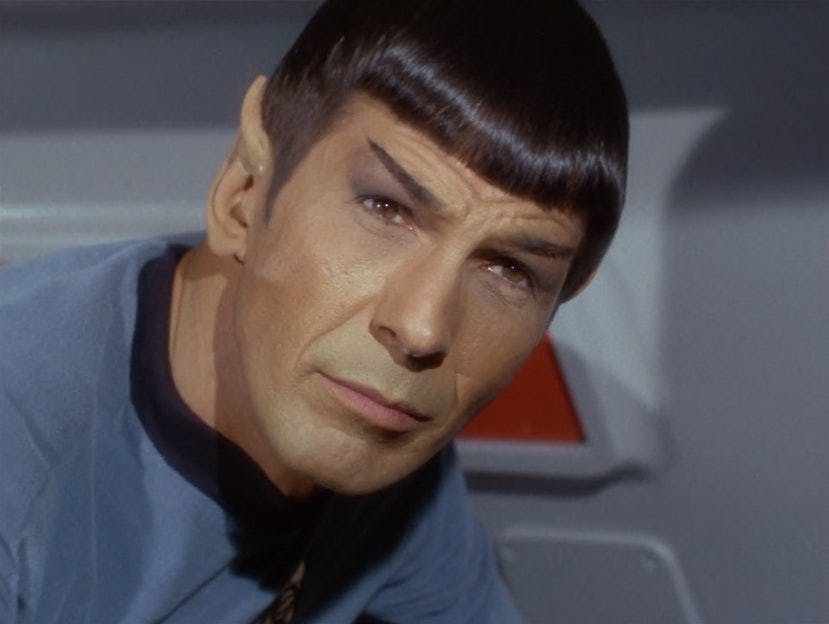
StarTrek.com
Even when I projected the same sort of fake confidence wielded by a number of captains, I was still tormented by swirling doubts. During his first command, Spock had no such issues or concerns, which is why everybody in "The Galileo Seven" kept yelling at him. He did save the day in the end, but it was (both literally and figuratively) a very bumpy ride.
When McCoy poked him, saying that Spock finally had his “big chance” to command. Spock set him right, “I realize command does have its fascinations, even under circumstances such as these. But I neither enjoy the idea of command, nor am I frightened of it. It simply exists.”
Same.
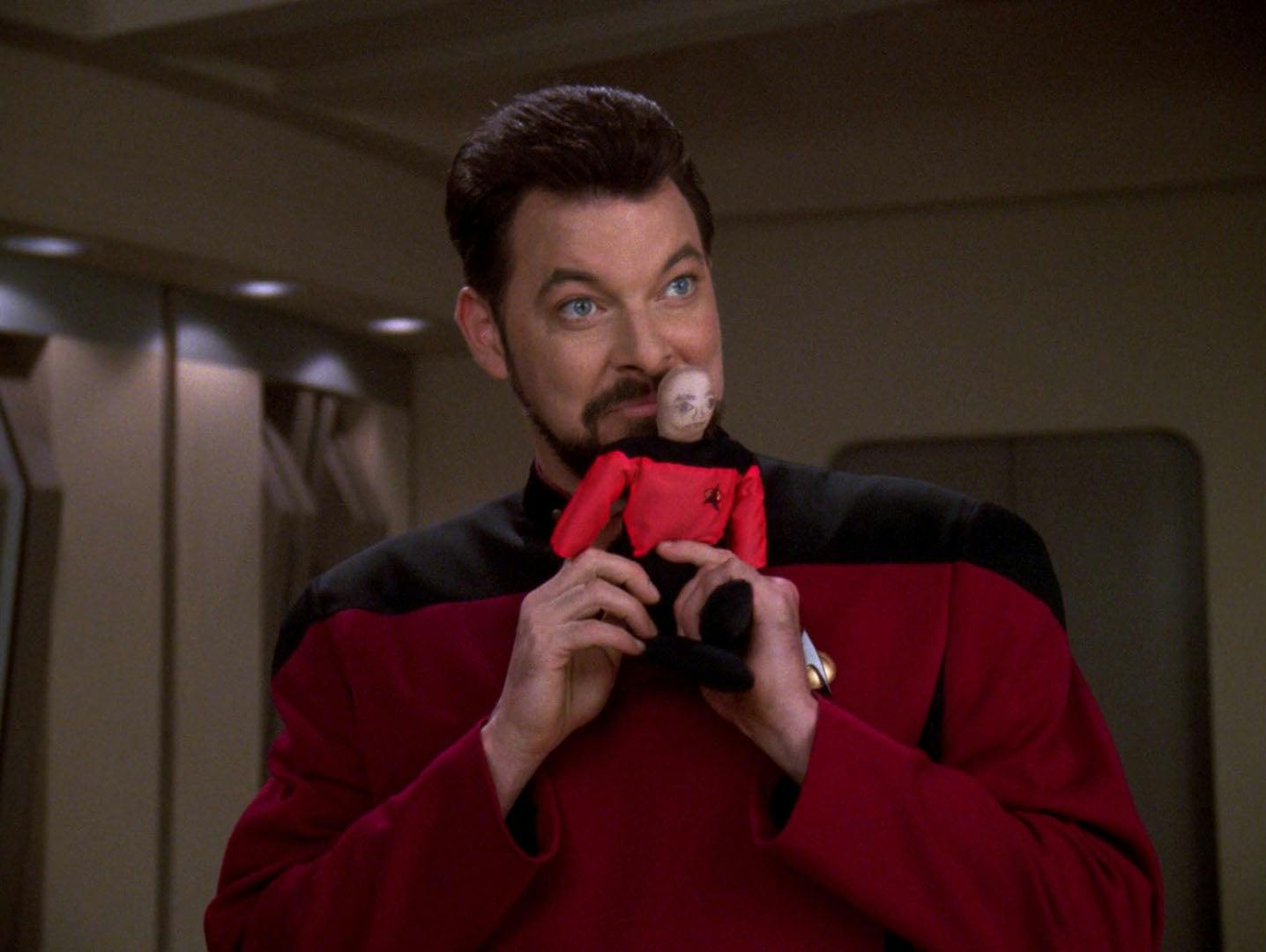
StarTrek.com
When The Next Generation premiered and William T. Riker came along, he added the one element to First Officer-dom that Spock was missing — fun. While Picard was serious, Riker got to be playful. And, of course, Riker led the away teams, which meant he got to have adventures, too.
While he was certainly cut out for command, Riker didn’t rush it. He turned down at least three command posts because he knew that the opportunities were already right there in front of him on the Enterprise-D. He was on the best ship in the fleet, reporting to the best captain. Things were great!
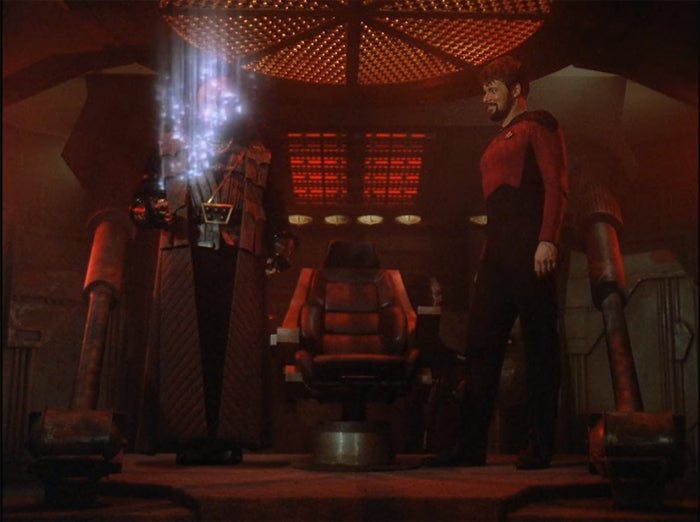
StarTrek.com
Of course, there’s always a caveat. And this was a big one — the first officer gig is only as good as the captain it comes with.
Riker definitely would’ve preferred his own command to serving under Captain Jellico, just as Spock knew that a traumatized Matt Decker should not be the one giving orders. When Riker served on the Pagh and his Klingon captain wouldn’t heed his very correct advice, he had him beamed him off the ship. However, the rest of us are not afforded the same opportunity no matter how much we yearn for it.
However, I cannot agree with Khan (or Milton) that it is better to reign in hell than serve in heaven. I like being the right-hand person. When I’m the captain, I have to manage up, dealing with higher-ups who aren’t aware of what the day-to-day reality is like. I have to play diplomat. I have to be everything to everybody, and I have to hide my vulnerabilities. As second-in-command, my opinions are taken seriously, more so than others because of my high position on the team. I have the freedom to suggest my weirder ideas. I’m not in the budget meetings; and let me tell you, those are not very exciting. I get to weigh in on all the big decisions, but leave the final, sometimes agonizing, decisions to someone else. Gratefully. Sure, I’m in media instead of working for Starfleet, but sometimes those decisions affect everything from content quality to people’s jobs. They matter!
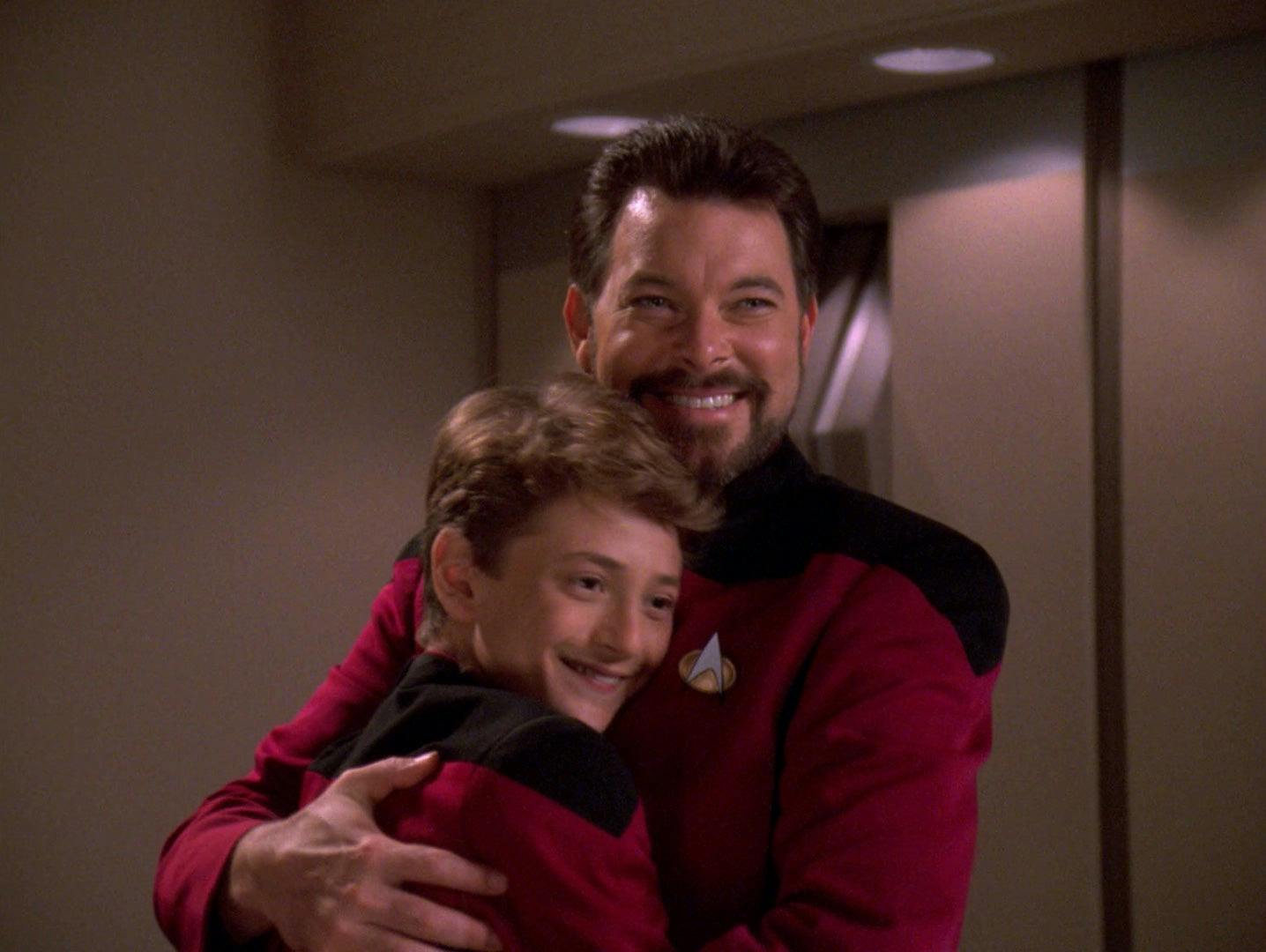
StarTrek.com
When I lean on my Spock influences, I can suggest more unorthodox solutions, unfettered by diplomacy or protocol. My captains don’t have that luxury. When I lean on the Riker side, I get to be more of a team leader who’s also one of the gang. Yes, I’m in charge, but I’m also one of the people, united in our frustration with mandates handed down from above and our determination to do great work in spite of them.
Like both Spock and Riker, I know how to lead, and I can step up. But like Spock, command is not the position I crave. Like Riker, I relish the adventure. They both knew a good thing when they saw it, and thanks to them, so do I.
This article was originally published on February 21, 2020.
Laurie Ulster (she/her) is a freelance writer and a TV producer who somehow survived her very confusing adolescence as the lone female Star Trek fan in middle school. She's a writer/editor and was the Supervising Producer on After Trek.
Stay tuned to StarTrek.com for more details! And be sure to follow @StarTrek on Facebook, Twitter, and Instagram.

